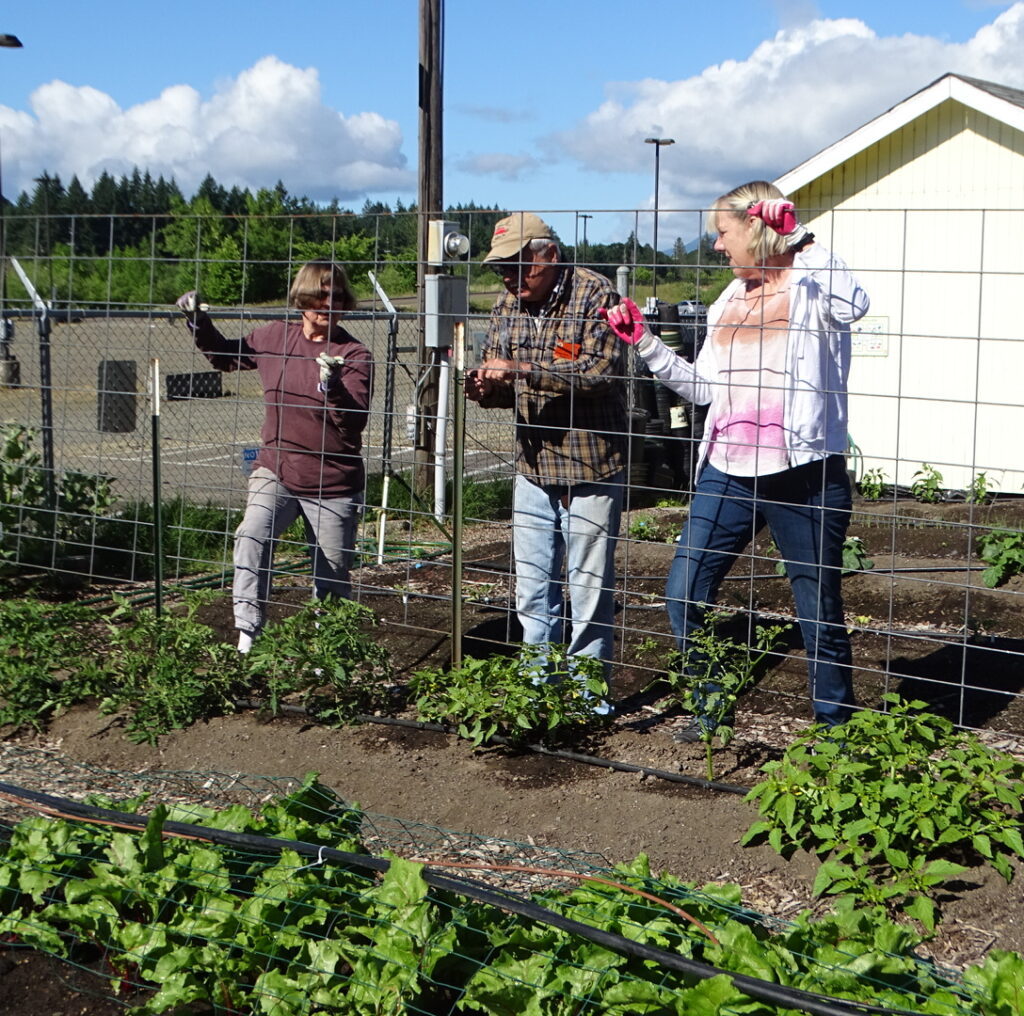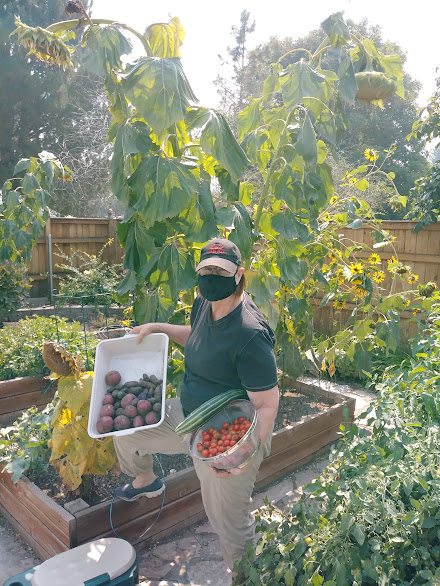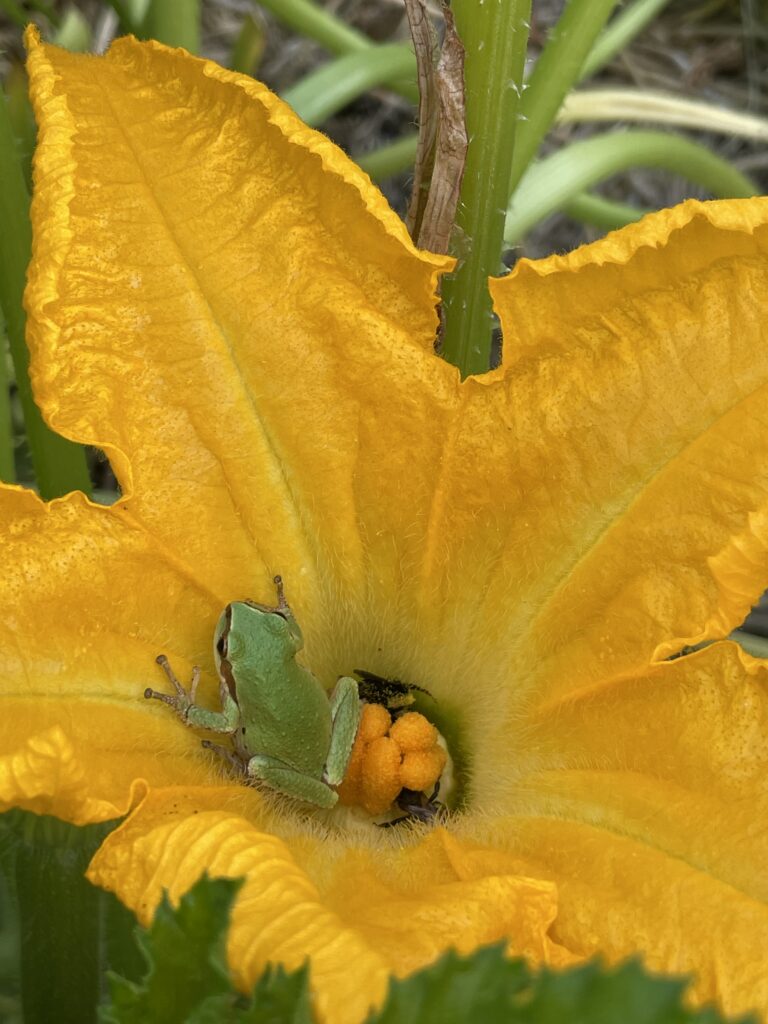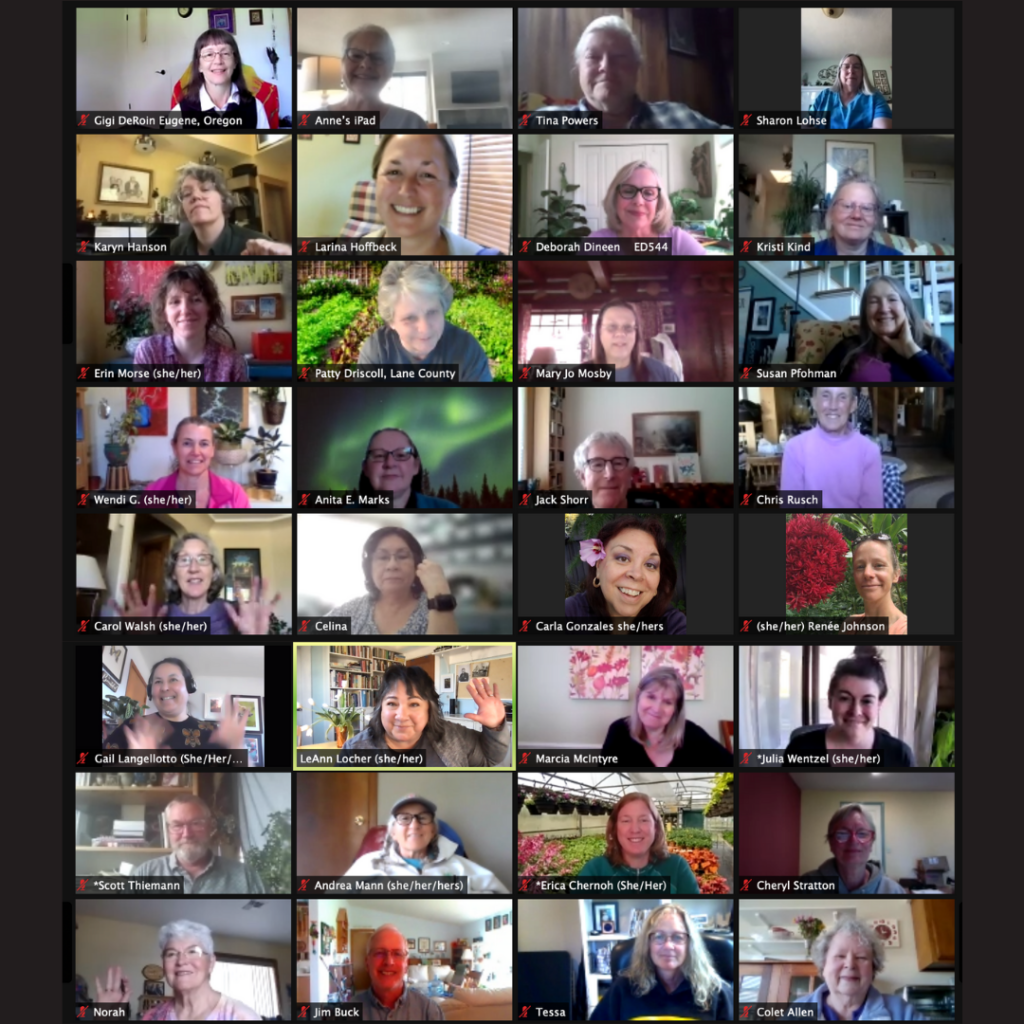Thank you to everyone who participated in our first ever Master Gardener Photo Contest! We are so grateful for the time and intention you made through connecting your art to the program’s priorities and values.
And the winners are…
Category: Place
The places of Master Gardeners: beauty shots of demonstration and learning gardens. What would you put on the cover of a travel magazine featuring demonstration gardens?
First place: Denise Saunders, Benton County

Notes from the judges: This photo tells a story of abundance and what can come from a well-tended garden, and from a demonstration garden. Specifically noting the incredible yield, and in a beautiful photo with diagonal lines, and wonderful contrasting colors. There’s also a sense of fun, realness and simplicity to this photo that we really love!
Second place: Geoff Puryear, Douglas County

Notes from the judges: This is a beautiful landscape photo with great texture, shape and form, and gorgeous color. This tells such an excellent story about what you can see and learn in a demonstration garden, including the pairing of plants, use of gravel and rocks, and diversity of plants. This photo also ties into the Master Gardener program priority of climate change, demonstrating xeriscaping in the garden.
Category: People
The people (Master Gardeners) in action, fulfilling the program’s mission and vision.
First place: Denise Saunders, Benton County

Notes from the judges: Master Gardeners working together: we are stronger as teams! This is also a great photo example of gardening techniques, with mulch, irrigation, and plant support structures in a demonstration garden. The diagonal lines in the plant structure are repeated in the lines of the irrigation and the colors in this photo are what a lovely day to work in the garden is all about: look at that bright blue sky!
Second place: Maryann Keiffer, Klamath County

Notes from the judges: This is a happy gardener with a successful harvest from the garden—even if we can’t see the smile under the mask, we’re pretty sure there’s one there. So many great angles in this photo, from the gardener’s pose to the lines of the raised bed to the two arching sunflowers that run vertically up the center. Thank you, Maryann for participating in the Grow This! Challenge with our friends at Food Hero and for capturing this great photo of your haul.
Category: Program Priorities
Depictions of any of our eight program priorities:
-Sustainable gardening skills
-Plant and insect identification and education
-Local food
-Native species
-Adaptive and accessible gardening
-Climate change
-Cultural connection
-Soil health
First place: Heidi Nichols, Multnomah County

Notes from the judges: Wow! This photo is one of those magic moments many gardeners experience but don’t always have a camera at the ready. Excellent focus, composition and color combined with clear connection to our program priorities of native species, sustainable gardening, and even local food.
Second place: Donald Lyon, Linn County

Notes from the judges: Careful and close attention to the small things in the garden pay off, and that includes identifying insects. This is a fantastic close-up/macro with great composition, and even captures the insects from two angles, which is so helpful in proper identification. The use of select focus allows the viewer to really concentrate on the elements of the insects, and even the slight angle of the plant adds to this photograph’s overall attractiveness. Check out the texture on those antennae!
Thank you to OSU Extension Communications for supplying prizes for the winners. Also, thank you to the judges who included Ann Marie Murphy of OSU Extension Communications, and 2021 Statewide Behind the Scenes Master Gardener Award winner, Sue Ryburn for joining me in judging.
Finally, thank you to everyone who participated. There were many fantastic photos submitted and if you didn’t enter this year, start collecting your submissions for next year!







